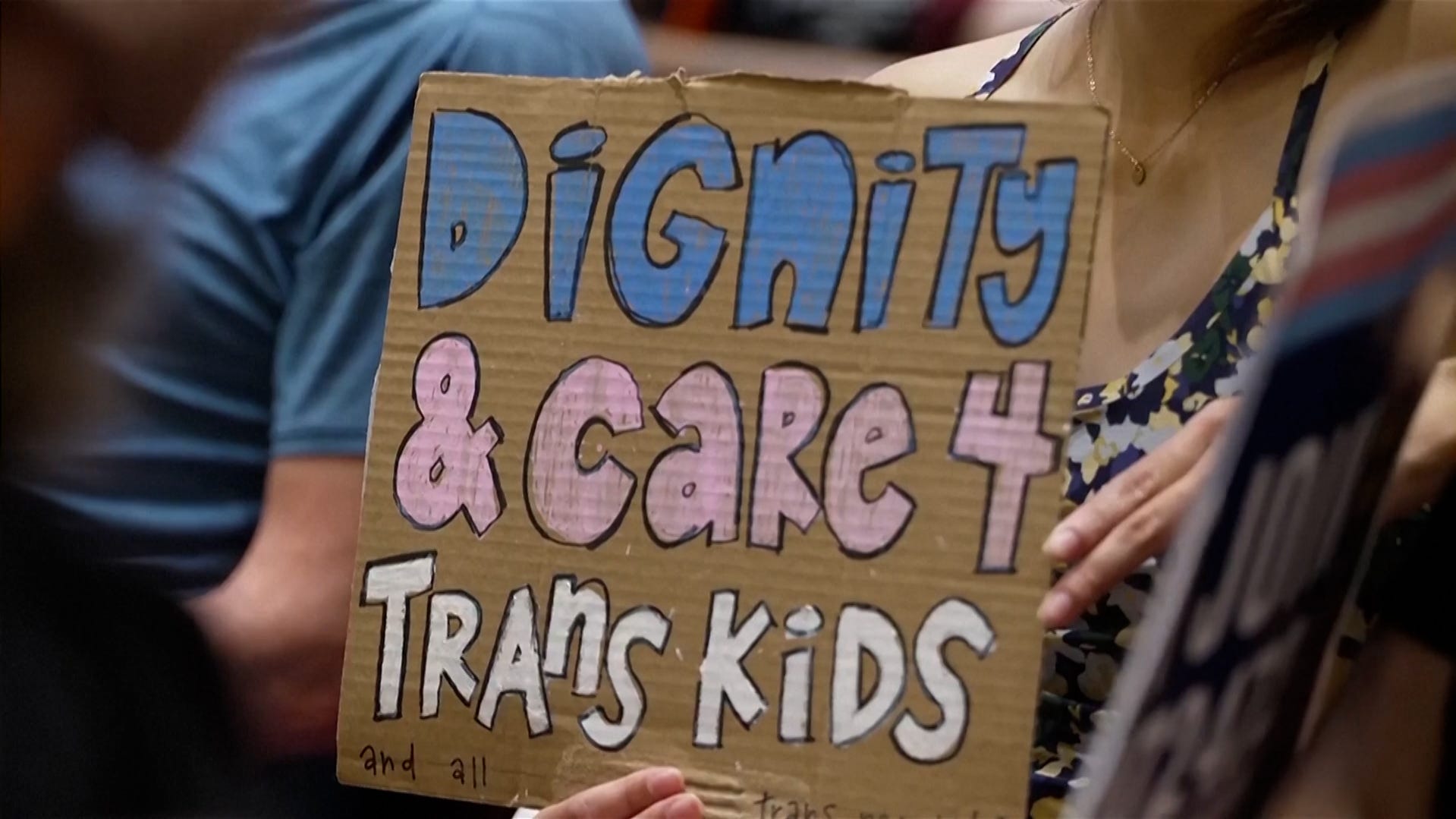Supreme Court upholds state ban on transgender minors using puberty blockers, hormone therapy
In her dissent, Justice Sotomayor said the Supreme Court “abandons transgender children and their families to political whims."

WASHINGTON − An ideologically divided Supreme Court upheld Tennessee’s ban on gender-affirming care for minors, a major setback for transgender Americans who have increasingly become targets of conservative states and the Trump administration.
The court's six conservative justices upheld the ban, and the three liberals dissented.
The June 18 decision − one of the court's biggest this year − came about five years after the court ruled that transgender people, as well as gay and lesbian people, are protected by a landmark civil rights law barring sex discrimination in the workplace.
But in this case, the court said preventing minors from using puberty blockers and hormone therapy does not violate the equal protection clause of the 14th Amendment, which requires the government to treat similarly situated people the same.
"Having concluded it does not, we leave questions regarding its policy to the people, their elected representatives, and the democratic process," Chief Justice John Roberts wrote for the majority.
In her dissent, Justice Sonia Sotomayor said the court retreated “from meaningful judicial review exactly where it matters most,” and “abandons transgender children and their families to political whims.”
Sotomayor read part of her lengthy dissent from the bench, a rare step typically done to stress disapproval.
Tennessee praises 'landmark victory'
Tennessee Attorney General Jonathan Skrmetti called the decision a "landmark victory ... in defense of America’s children."
"A bipartisan supermajority of Tennessee's elected representatives carefully considered the evidence and voted to protect kids from irreversible decisions they cannot yet fully understand," he said in a statement about the 2023 law.
The court's ruling that Tennessee's law is subject to the lowest level of judicial scrutiny means similar laws in other states are more likely to be upheld.
ACLU lawyer: `Painful setback'
Chase Strangio, a lawyer with the American Civil Liberties Union who represented the Tennessee families challenging the law, said the decision is a “painful setback.”
But Strangio, the first openly transgender person to argue before the court, said the opinion left ways to fight other restrictions on medical care as well as various actions against transgender people taken by the Trump administration.
“This is a setback in many ways but we continue on with the fight," he said.
Dispute over discrimination
The Biden administration and the Tennessee families that challenged the law argued it discriminated against transgender people because a teenager whose sex assigned at birth is male may be given testosterone to treat delayed puberty, but a teenager assigned female at birth who wants testosterone to treat gender dysphoria may not have it.
Tennessee countered that the treatments have different risks and benefits when used by transgender young people, who need to be protected from life-altering consequences.
The Supreme Court agreed, saying the law is removing one set of diagnoses − gender dysphoria − from the range of treatable conditions, not excluding people from treatment because they're transgender.
Trump administration sided with Tennessee
After the case was argued in December, the Justice Department under President Donald Trump told the court it was no longer against Tennessee's law.
Trump made opposition to transgender rights a central theme of his presidential campaign.
The issue, a major flashpoint in the culture wars, gained prominence with startling speed, despite the tiny – though increasing – fraction of Americans who are transgender.
Since 2022, the number of states taking steps to limit access to gender-affirming care for minors grew from four to about half.
States have also taken steps to restrict the bathrooms transgender students can use, what sports teams they can join. and whether they can change the sex designation on their birth certificates.
Path to the Supreme Court
When families with transgender children challenged bans on gender-affirming care, district courts largely sided with them and blocked enforcement. But three appeals courts upheld the laws, including the Cincinnati-based 6th U.S. Circuit Court of Appeals.
Tennessee’s law was the first to reach the Supreme Court.

During oral arguments in December, several of the conservative justices voiced support for taking a similar approach to what the court did when it overturned Roe v. Wade, finding there’s no constitutional barrier to the question at hand and leaving it up to state and federal legislatures to decide.
“My understanding is the Constitution leaves that question to the people’s representatives, rather than to nine people, none of whom is a doctor,” Chief Justice John Roberts said in December’s debate.
Liberal justices say law discriminates
The court’s liberal justices had argued that the court can’t ignore constitutional protections, particularly for the vulnerable.
“That’s a question for the court,” Justice Ketanji Brown Jackson said.
Sotomayor wrote in her dissent that the law “plainly discriminates on the basis of sex,” tying it to the 2020 decision barring employment discrimination for transgender people.
Roberts responded that the court didn’t decide in 2020 whether the reasoning could be applied outside of the civil rights law at issue in that case. And the court didn't need to now, he said, because neither a teen's sex nor transgender status is the reason the minor can't get puberty blockers under Tennessee's law.
What medical experts say
Gender-affirming care for minors is supported by every major medical organization, including the American Medical Association, the American Academy of Pediatrics and the American Psychiatric Association.
But the court’s conservative justices focused more on the fact that some European countries have tightened restrictions on the treatments. England’s National Health Service, for example, stopped prescribing the drugs outside of clinical trials after a review concluded more data was needed to help doctors and their patients make informed decisions.
Tennessee, Roberts wrote, concluded that there's an ongoing debate among medical experts about the risks and benefits of the treatments.
"Recent developments," he said, "only underscore the need for legislative flexibility in this area."
The case is U.S. v. Skrmetti.